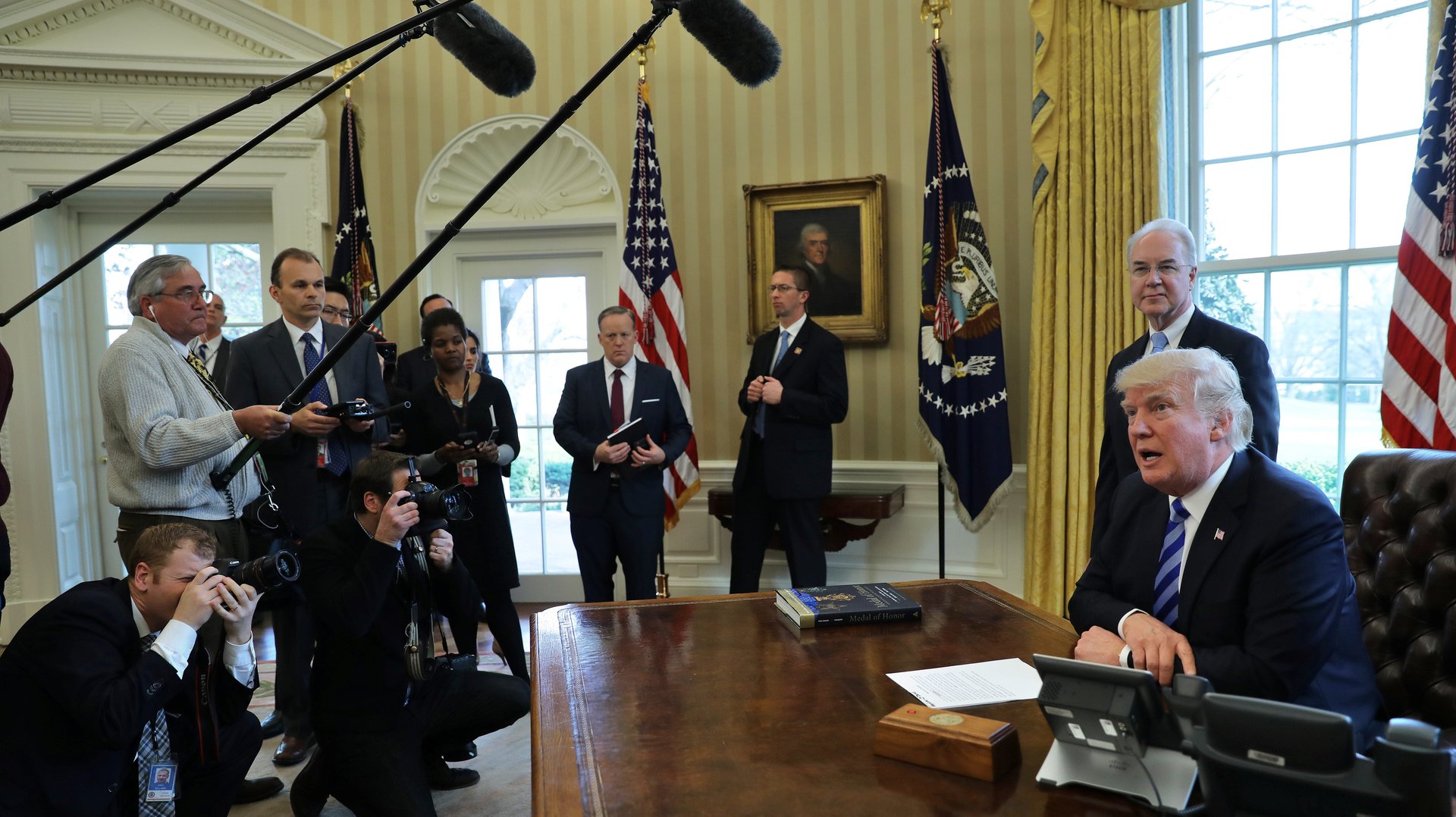Trump gets a hard lesson on Obamacare: It’s easier to criticize something than fix it
US president Donald Trump’s signature campaign promise, the complete repeal and replacement of Obamacare, is now dead, at least for the foreseeable future, after it didn’t get enough votes in the US House of Representatives, despite a Republican majority.


US president Donald Trump’s signature campaign promise, the complete repeal and replacement of Obamacare, is now dead, at least for the foreseeable future, after it didn’t get enough votes in the US House of Representatives, despite a Republican majority.
Trump, like other populist leaders, promised to do away with “business-as-usual” politics. But as revisions of the health-care bill were kicked between Capitol Hill and the White House, it became clear that this was very much business as usual—a highly public display of the traditional arm-twisting and favor-granting that had led disgusted US voters to vote for Trump. In an attempt to get the needed votes, the White House took a bill already deeply unpopular with voters and heavily criticized by the medical profession and made it even more draconian, stripping away some of the most basic health-insurance guarantees.
Trump pledged before the US election that he would quickly craft “much better health care, at a much less expensive cost.” He also promised “decades of failure in Washington, and decades of special-interest dealing, must come to an end.” Populists enjoy making such sweeping promises, and voters like them too, because they are easier to digest than the equivocations of mainstream politicians and the nitpicking of policy wonks. But they can also become yokes around a leader’s neck.
The Republicans’ mistake was to spend so many years demonizing Obamacare that repealing it became an end in itself, which had to be achieved at any cost. It turned out that “any cost” was not, in fact, a feasible price to pay.
“We were a ten-year opposition party, where being against things was easy to do,” a chastened Paul Ryan, the House speaker, admitted afterward. “Doing big things is hard.” Welcome to reality.